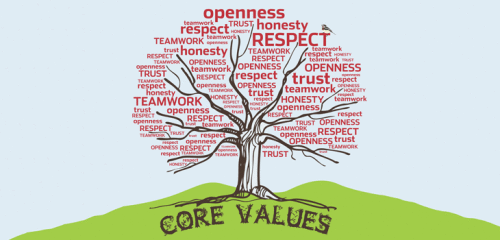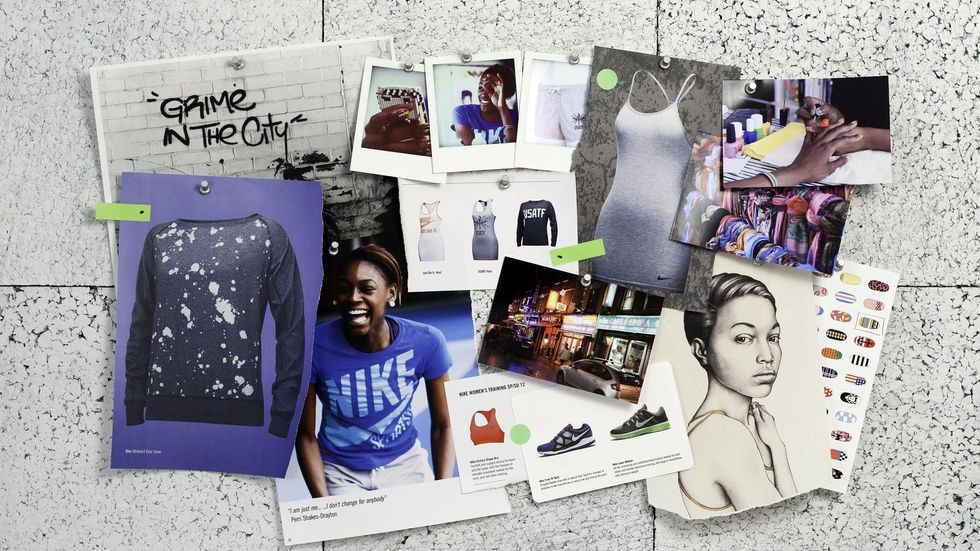
Let's first take a look at how your core values can positively impact your brand.
Why Do Your Brand Values Matter?

Brand values, when taken seriously by executives, are important because they influence how consumers and employees view and engage with your brand. Here are 12 ways that brand values can positively impact your brand:
- Lets Your Audience Know What To Expect From Your Brand
- Builds A Memorable Brand
- Improves Brand Consistency
- Drives Brand Authenticity & Uniqueness
- Builds A Connection With Your Customers
- Helps Attract Customers Who Share The Same Values
- Encourages Customer Retention - ensuring you will continue to get their sales for years to come
- Leads To Higher ROI & Customer Loyalty
- Increases Sales & Awareness
- Sets Your Business Apart From The Competition
- Attracts & Retains Top Talent - 47% of active job seekers cite company culture as their driving reason for looking for work
- Boosts Employee Motivation & Engagement - 76% of employees believe that well-defined business goals help cultivate a positive work culture
How To Develop Your Brand Values

The goal is to have your brand values reflect the reality of who you are as a business. It's easy to use brand values like "customer service," "quality," "integrity," and "teamwork," but keep in mind these are overused values. You want to stand out from the crowd and differentiate yourself.
While figuring out your unique core values can be challenging and time-consuming, it's critical to do the work upfront to reap the benefits on the back end. Here is my 4-step method for developing your core brand values.
Brands As Inspiration

Look at brands you love (and hate! I'll get to that later...) for inspiration. Draw from your personal experiences to list what made them so special. The goal is to capture the following...
- Think about what resonates with you and this brand.
- How do you feel when interacting with this brand?
- Have you purchased from this brand before? If so, what was the experience like?
Research

Gather all past consumer research and customer feedback that the company has had in the last two to three years. Pull together and analyze the following:
- Customer reviews/feedback
- Social media comments
- Live chat sessions/support
- Recorded sales calls
- Online community forum conversations
- Customer service call feedback
- Polls and surveys
- Focus groups
- Quantitative research/testing
Brainstorm

Gather a team of senior leaders, key stakeholders (i.e., founders, board members, investors, suppliers, customers), and/or employees. You should only include those individuals who truly understand why you are in business, not what your business is. There's a difference.
Get a moderator to run this brainstorm. The moderator...
- Facilitates the discussion
- Remains neutral during discussions
- Has the ability to control group politics
- Is the administrator: welcomes/intros, keeps time, delegates duties, keeps everyone on task, etc.
- Establishes a trusting relationship with participants
- Encourages all members to participate
- Is a good decision-maker
- List of 600 core values to get you started: Templates
- Questions to ask the team:
- What do you value most about your brand?
- What do you think your brand stands for?
- What values do you appreciate that are exhibited among your current employees?
- What's important about the way you run your business?
Once you have your exhaustive list developed, you're ready to start narrowing it down to the top three to five. Give people colored stickered dots that represent their top 1 through 5 choices. Have everyone go around the room and put their colored dots next to their top five brand value choices (i.e., first choice represents red, second choice represents green, etc.).
Once you have your top three to five brand values, compile them, share them with the team, and sit with them for a while. It's important to see if the company is living these brand values. You may need to go back and make some adjustments as a team.
Make Unique

If you want your brand to stand out from the competition, it's essential to develop unique brand values. Utilize the tips above to draw on your brand's DNA as you begin to develop your core values. Here are four additional tips to ensure your brand values have the intended effect:
- Be specific: Be sure your core values are clear and specific.
- Prompt action: Use verbs to prompt action.
- Short phrases: Easier to recall and more likely to trigger a response.
- Multisensory branding: Leverage as many of the senses as possible to communicate your brand values (i.e., music, video, sound, visuals, etc.). Raja Rajamannar has a great book on Quantum Marketing that talks about this.
In today's marketplace, it's not enough to be good at what you do—you have to be exceptional! There are a ton of competitors out there who are great, and they are chopping at your heels. To be exceptional, you need to spend the time and effort developing your brand values. Show your audience exactly who you are, what you stand for, and why you are unique. You've got this!
- Brand Strategy: What Is Brand Value? (With Examples) - Work It Daily ›
- 4 Core Values That Every Organization Should Have - Work It Daily ›
- How To Develop A Brand Purpose - Work It Daily ›
- 4 Best Personal Branding Tips For Executives - Work It Daily ›
- How To Conduct Market Segmentation To Drive Conversions - Work It Daily ›
- What Is A Target Audience & Why Is It Important? - Work It Daily ›
- How To Connect With Consumers On An Emotional Level - Work It Daily ›
- Why Your Brand Positioning Is The Make-Or-Break Difference - Work It Daily ›
- How To Run An Effective Brainstorming Session - Work It Daily ›
- The Value Of Testing (And How To Do It) - Work It Daily ›









